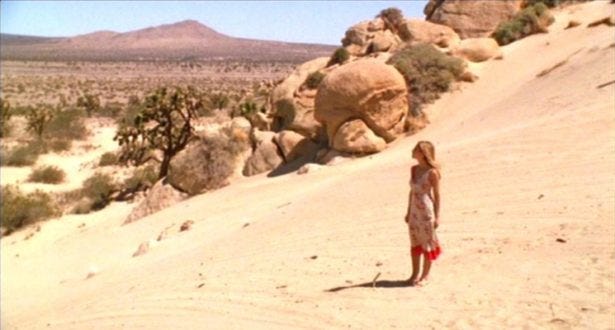I’ve struggled over coming up with the right words to describe what Buffy the Vampire Slayer means to me. Of every series that’s meant to be covered in Our Television Heritage, I can’t quite call it the best on here- that first decade of The Simpsons is too undeniable to discard, The Sopranos continues to surprise and resonate as well as it does today for a reason, and the run of Cheers is immaculate, for starters- but it also feels like my show, the one I love and cherish in a way that others just won’t do.
I’ve tried to explore and explain why the series became as revered as it is today over my writeups of the show’s first 142 episodes, thanks to its witty, fast-paced dialogue, strong world-building and unforgettable character development. Stories like Willow’s realization of her power and love for Tara or Spike’s unequaled fervor for validation are what keeps bringing audiences of all ages into the series, discovering Buffy like a new favorite book or album, even as many works try to copy what Joss Whedon and co brought to life more than 25 years ago.
But what I think makes Buffy different from anything that comes before or since comes from the titular vampire slayer. If I were asked to rank the best TV characters of all time, Buffy Summers would make the shortlist for sure, along with Homer Simpson, Tony Soprano, Omar Little, Lucy Ricardo, Rhoda Morgenstern, Lou Grant, George Costanza, Carlton Banks and Hank Hill (side note- this year’s TCA inductees should be either The Fresh Prince of Bel Air, King of the Hill, or hell, The Twilight Zone. Also, The Americans, and make Elizabeth Banks my 11th choice for best TV character ever. Or 13th, I forgot about Walter White and Joan Holloway. Yes, Joan over Don.), and I could make a case for her going straight to the top.
Buffy’s strength and determination instantly make her iconic, but her sense of humor truly endears her. Throughout every trial, she never gives up or accepts less than she deserves, no matter the odds. Fighting against a god or the intangible embodiment of evil does nothing to stop her from her job. Buffy also never stops fighting for not just herself, but anyone who needs a hand, such as Potential Slayers or someone being bullied. It’s her determination and judge of character that drew Buffy to Willow and Xander, giving the world its most powerful witch and one of its greatest defenders, respectively. Buffy’s refusal to stand down from Cordelia’s determination as HBIC is what caused her to reevaluate her life and join the good fight. Her willingness to give people the chance to prove or redeem themselves has allowed other characters like Oz, Anya, Tara and even Andrew save the world, which also includes her complicated, yet crucial relationship with Faith. Her dedication to her sister and mother show someone who doesn’t forget where she came from and what matters most at the end of the day, while her relationship with Giles proves that Buffy’s mindset isn’t so carved in stone that she can’t expand her definition of family. And despite whirlwind romances with Angel, Riley and Spike, each men being something different that she craves yet admires, Buffy remains her own, independent person who isn’t afraid to leave when the time comes.
This is why I loved the show as an impressionable adolescent, and why I still love it now, but the other characters matter just as much. Willow’s self-journey to find her place in life, as a lady-loving-commander of wicca remains just as crucial to the show’s legacy, as hers and Tara’s relationship continues to remain influential, an uncompromising young sapphic relationship that was openly sexual but loving above all else. Also important was Giles’ struggle to maintain his composure as a father figure for Buffy, or Xander’s imperfect but earnest growth from whiny virgin to confident, dedicated companion. Or Angel and Spike’s contradicting but comparable turns as lovers and antagonists. Or Anya’s reluctant but ultimately welcoming turn to humanity. I could keep going on.
While Joss Whedon’s baggage has put Buffy in an awkward position for its legacy, enough so that I nearly didn’t cover the series at all as intended, we have to realize that the show is bigger than him. Whedon is the show’s most prolific writer and is responsible for much of its lore, but David Greenwalt, Jane Espenson, Marti Noxon, David Fury, Douglas Petrie and Rebecca Rand Kirshner are just as responsible for the magic from the writer’s room as the orange one himself is, not to mention the incredible direction, unforgettable soundtrack and iconic performances that he had less responsibility for. We can’t forget Whedon’s name and contributions, but the series is so much more than just his.
And at the end of the day, it’s not his writing that we need or take away from Buffy the Vampire Slayer (although many have tried to copy his style in the years since), but Buffy’s strength herself.
Initially, I was hoping that this playthrough of the series, all the time and effort I put into researching and cracking the world of the Hellmouth, would get the Buffyverse out of my system. But right now, as I try to write the last words I’ll need to for this series, I keep returning to some of Buffy and Giles’ most iconic heart-to-hearts. In my mind, they’re still bickering like they’re at the original Sunnydale High library, with nary a computer in sight.




I haven't even watched an episode of Buffy in well over a decade, closer to 2 decades, but this has brought back so many good memories of watching the show flooding back to me. You're right that the characters showed so much memorable growth throughout the run of the show, making their journeys hard to forget.